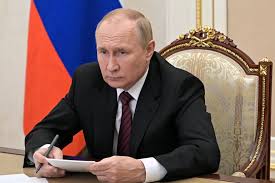The war in Ukraine has taken a dramatic turn as NATO allies face new strains over how to confront Russia’s escalating aggression, while U.S. President Donald Trump’s direct engagement with Russian President Vladimir Putin has sparked both alarm and cautious optimism across Europe.
Poland has emerged as one of the strongest voices calling for a more forceful NATO response, with Prime Minister Donald Tusk warning that hesitation could embolden Moscow. Warsaw has urged allies to increase troop deployments in Eastern Europe, boost arms deliveries to Ukraine, and prepare “all measures necessary” to defend NATO’s eastern flank.
Meanwhile, Ukrainian President Volodymyr Zelenskyy has continued his appeals for Western unity, stressing that delays in weapons shipments are costing lives daily. Ukrainian officials confirmed that Russian strikes have intensified along the eastern front, with multiple civilian casualties reported in Kharkiv and Donetsk regions.
The Kremlin, however, has highlighted ongoing direct talks between Trump and Putin as a possible opening for de-escalation. Russian state media framed the discussions as a sign that Washington is moving closer to recognizing Moscow’s demands on Ukraine, though U.S. officials have denied any change in policy. Critics of Trump at home and abroad argue that the private dialogue risks undermining NATO cohesion and sending mixed signals to allies.
Across Europe, leaders are divided. Germany and France have signaled a preference for cautious diplomacy while maintaining sanctions. Baltic nations and Poland insist that deterrence, not dialogue, is the only path to peace. Turkey and Hungary, meanwhile, have positioned themselves as potential mediators, urging restraint and dialogue over confrontation.
The uncertainty has rattled NATO’s unity at a critical moment. Analysts warn that if member states splinter on strategy, Russia could exploit divisions to advance its military objectives in Ukraine.
For Ukrainians on the ground, however, the geopolitics mean little compared to the immediate human cost. Aid groups say thousands remain displaced, while power and water shortages worsen in conflict zones. “We need weapons, not words,” a Ukrainian soldier told reporters in Dnipro, capturing the sense of urgency felt by many on the frontlines.



